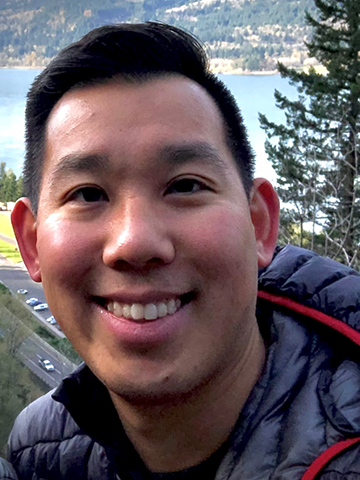The Office of Public Health Practice Alumni Spotlight Series: Stephen Goo, MPH, JD, LLM, (MPH ’13)
Stephen Goo, MPH, JD, LLM, (MPH ’13), Saint Louis University graduate and Contract Investigator for the US Department of Health and Human Services in the Office for Civil Rights, recently did a Q&A with the Office of Public Health Practice about public health and learning at SLU.

OPHP: What was the most important thing you learned at SLU?
SG: The important thing I learned from SLU was the importance of public health. Prior
to going to SLU, I had been in the pre-med track and in clinical research. In that
area, there was this idea that population health was just something you would learn,
but probably never actually understand. So understanding and learning about population
health was really important -- it is important to think about health care at a population
level, not just the individual.
Tell us about your role in the HHS Office for Civil Rights...
I'm part of the Pacific Region team that investigates and enforces HIPAA privacy and
security rules. We also investigate and enforce health care related civil rights claims.
Claims we receive could be anything from impermissible disclosure of private health
information, inability to access medical records, gender equality, disability rights,
just to name a few. If it involves health care related civil rights, there's probably
a case that we are working on. Some cases are as simple as ensuring someone receives
reasonable disability accommodations, such as access to care services or auxiliary
aids for effective communication. Or it could be a complex HIPAA privacy and security
case involving network hacking. Our job is to ensure HIPAA Rule and Civil Rights compliance.
How did you end up in your current role?
This is not where I originally planned to be. I thought I was going to be a physician.
But after getting my MPH I ended up going to law school in California with the mindset
that I was going to only practice in health care law. Following law school, I got
into the University of Washington's Health Law legal master's program. The program
allowed me to specialize in health care law and health care policy. I’ve worked for
different health care organizations, such as nonprofits and hospital systems. I became
more familiar with the health care arena and the laws and policies that govern it,
and eventually, I landed in my current position with OCR. My path wasn't originally
what I expected, but where I am today is the product of my experiences. Being in public
health, I realized there were things I wanted to do that weren't necessarily what
physicians do. At SLU, I was working at BJC and my boss was the Chief Medical Officer.
That's when I recognized I was interested in the management side of health care, specifically
the policies that govern what providers can and cannot do. My boss encouraged me to
go to law school. It all happened very naturally.
Where do you see yourself going in the next several years?
One of my current dreams is to be in-house at the Children's Hospital here in Seattle
- just being able to positively affect their system in the way that they deliver care
services and possibly help to advance pediatric medical technologies. I want to use
my unique background in clinical research, public health and health law to help push
new technologies through the FDA and help providers and developers navigate the complex
pathway to get new resources out to health care providers and consumers.
College for Public Health and Social Justice
The Saint Louis University College for Public Health and Social Justice is the only academic unit of its kind, studying social, environmental and physical influences that together determine the health and well-being of people and communities. It also is the only accredited school or college of public health among nearly 250 Catholic institutions of higher education in the United States.
Guided by a mission of social justice and focus on finding innovative and collaborative solutions for complex health problems, the College offers nationally recognized programs in public health and health administration.